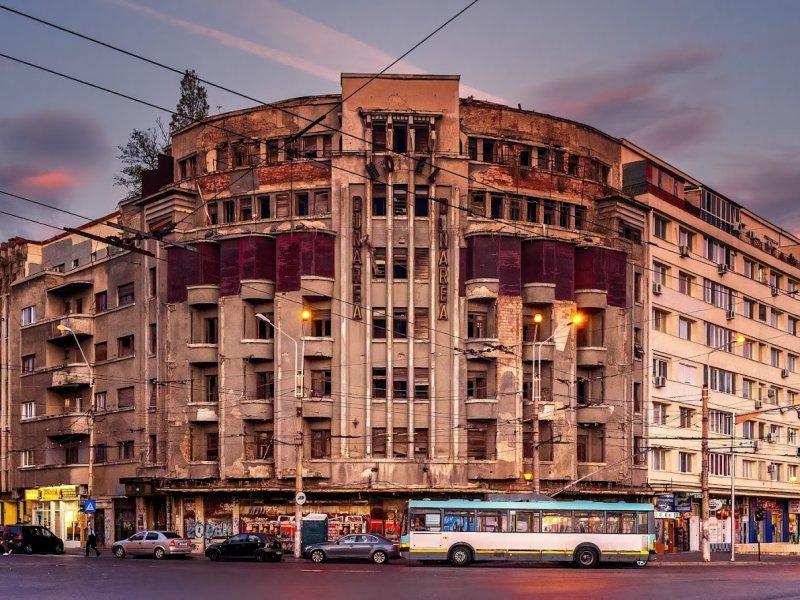Located right on Calea Griviței, in the northern part of the capital, , Hotel Dunărea stands sealed shut. It’s a massive, decaying structure—peeling facade, shattered windows, metal barricades at the entrance. Once a functioning state-run hotel, now a long-abandoned carcass, neglected by every institution that should’ve dealt with it.
Built in the 1960s, the hotel served its purpose during the communist era: accommodation for workers, traveling staff, or local tourists. It was never glamorous, but it was cheap, clean, and reliable. After 1990, it spiraled fast. Privatization came with no clear plan, and since then, it's been stuck in a limbo of lawsuits and murky ownership.
For years, the building was occupied by unhoused people. Evictions followed, protests too, but the core problem stayed unresolved—no one knows, even today, what’s supposed to happen with it. It isn’t listed as a historic monument, but you can’t miss it. Right in the middle of the city, a rotting tower visible from all directions.
City Hall and the Ministry of Culture have taken turns dodging responsibility. Every few years, a headline pops up: maybe it’ll be restored, maybe demolished, maybe sold. But nothing actually happens. Meanwhile, the building continues to decay, inch by inch.
Hotel Dunărea is more than an abandoned property—it’s a snapshot of how Bucharest handles its problems. By letting them rot in public view, while decisions get buried in bureaucracy and backroom deals. Behind its broken walls and empty windows, what’s missing most is someone to make a call.



